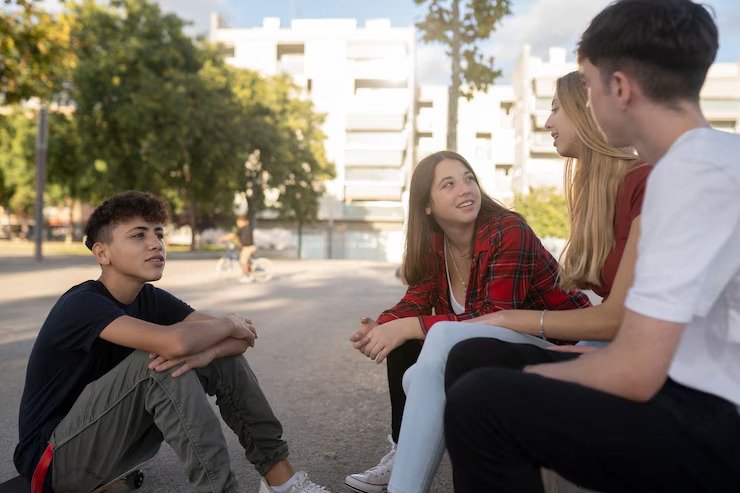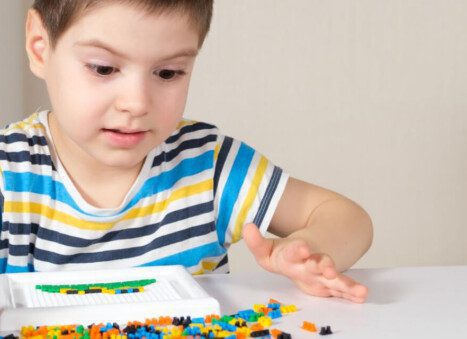
How To Manage Reckless Behaviors In Teens?
Risk-taking, impulsive, and experiential behaviors are natural parts of adolescent growth and development. These help teenagers explore, identify, and establish their self-identities and self-reflect on their achievements and failures.
However, these actions can easily turn into high-risk behaviors. This is particularly true among teenagers. Some of the most common teenage reckless behaviors are preventable injuries and violence, cigarette smoking, sexual activities, self-harm, and substance abuse. All of these reckless behaviors may put teenagers’ health, well-being, and future at risk.
As parents, it’s our responsibility to guide them to take positive steps to return to the right path and never again take a wrong turn.
Here are a few key protective factors against high-risk teenage behaviors that parents should consider.
Family Cohesion
Evidence has shown that family cohesion—a family’s sense of connectedness and belongingness—can reduce high-risk behaviors in teenagers. In contrast, other research has shown that the lack of a supportive environment makes them more reckless.
Unfortunately, it’s commonplace in many dysfunctional families. They have tensions and conflicts, which lead to a loss of communication and trust in the household. Teenagers then seek a sense of attachment and validation elsewhere, typically in risky situations.
Other studies have also shown that family dysfunction is linked to mental health disorders. Some of these include antisocial personality disorder (ASPD) and borderline personality disorder (BPD), which can be triggers of impulsive behavior traits in teenagers.
Mentorship

Another way teenagers can get a supportive environment is through mentorship. Besides emotional support, they can also learn various skills, develop healthy behaviors, and build better youth resilience.
Mentorship may come in different forms. It can be naturally done through adult friendship, advice, or support. For example, get your agenda out of the equation and empower them to express their authentic message entirely. This is an excellent way to amplify and validate their voice.
Another is through a prevention program that helps improve youths’ social environment and resilience. Take Big Brothers and Big Sisters (BBBS) as an example. This United States (US) program pairs an enrolled younger teenager with another older enrollee, encouraging one-to-one supportive mentoring relationships between friends.
School Connection
Schools can also help teenagers get a sense of connectedness. This is often associated with having trusted friends at school, being in a smaller school, and placing a safe classroom management policy.
The smaller the school population, the closer the students are to each other. This creates more social bonding and allows students to feel cared for, prompting their sense of belonging to their school.
A school’s management policy will also help them be treated and treat others fairly. As long as the protocols and consequences are realistic and achievable, it’ll eventually reduce the intensity, frequency, and prevalence of reckless behaviors in teenagers.
Extra-Curricular Activities
Prosocial involvement is also another way for teenagers to have a sense of belongingness. This can be done by the school or the parents. Some examples of these social activities are school festivals, sports groups, volunteer service, and garage sales.
Research shows that these positive youth development programs won’t only enable teenagers to contribute and experience positive social exchanges. They will also help them develop their social skills, broaden ethical standards’ understanding, enhance emotional intelligence, and have better critical thinking.
After their active involvement, teenagers are expected to gain dependable independence and a stronger sense of self. With these improvements alongside better understanding and deeper connection, teenagers will likely not think of any reckless behaviors.
Motivation, Coping Skills, and Supported Mental Health

Avoid generalizing teenagers. Each has unique capabilities and individual needs. Many may need motivation to drive them to do something, while others have innate coping skills that help them manage stress and emotionally driven behaviors.
Research shows that teenagers with internal motivation and healthy coping skills excel academically, stay resilient, and manage their emotions well. That may mean they’re less likely to engage in reckless behaviors.
Be extra careful when approaching and attempting to help teenagers with emotional concerns, especially from a dysfunctional family. The depression or borderline personality disorder they’re suffering from their family could easily lead to a suicide attempt.
Suicide isn’t a reckless behavior and not a mental disorder. However, its leading causes are typically mental illnesses, including depression, BPD, and substance use disorders, which are or result in reckless behaviors.
If a teenager shows warning signs of suicide, such as mood swings or suicidal thoughts, be careful with what you say. The last thing you want is fanning the flames. If you’re unsure what’s the right to say and do, leave it to the professionals to prevent any more damage.
The Key to Preventing Reckless Behaviors in Teens
Having a good parent-child relationship is the key. Communicate openly and teach them about the consequences of engaging in risky behaviors. Ensure to show you also care for them so that whatever you say won’t sound like nagging.
For example, if you know they’re engaging in violent actions, ask them why and prepare a first-aid kit. Take advantage of the Cefdinir Savings Offer and other store promotions to save costs.
Avoid immediate punishments. Doing so will only worsen the situation. Instead, let them experience natural consequences, such as restricted privileges, more chores, or grounding. It’s a good way for them to have chances to restituting themselves to self-learn.
Final Thoughts
While puberty is crucial for teenagers’ intimate personal development and increasing independence, it doesn’t mean parents should let them be. Teenagers can easily be misguided, so it’s the parents’ duty to “lead” them to avoid the right path.
Read Also:
Already have an account?
Sign In
Create your account
User added successfully. Log in









